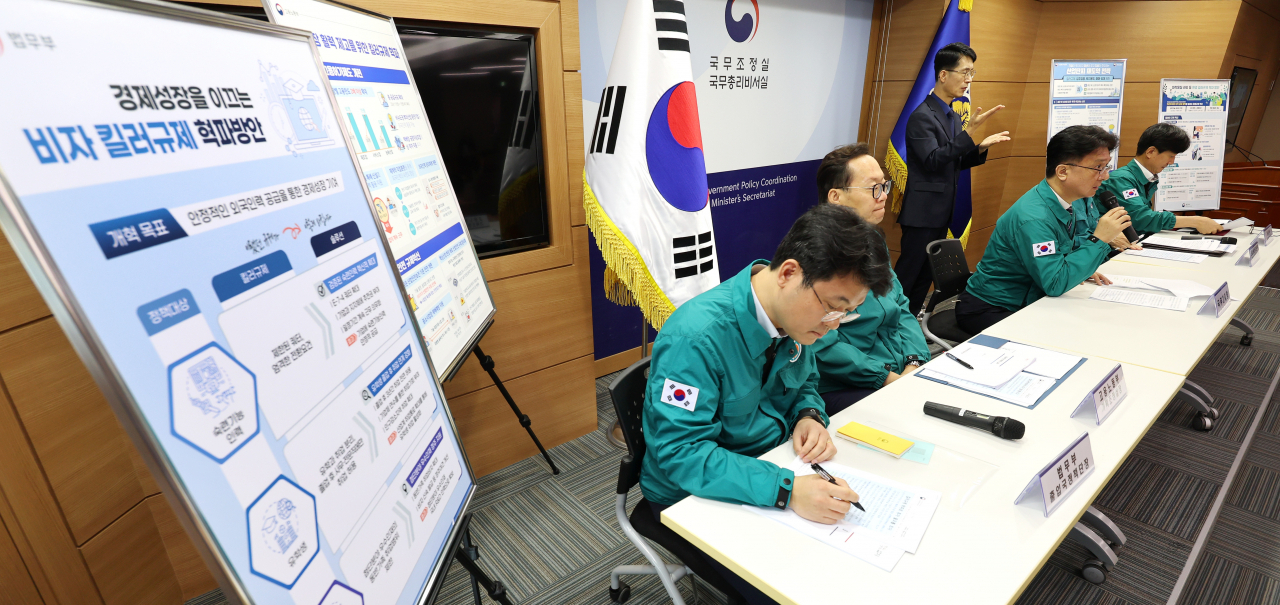 |
Lee Jung-won, the second deputy director of the Office for Government Policy Coordination, briefs details on the regulatory innovation strategy meeting at the Sejong Government Complex on Thursday. (Yonhap) |
The South Korean government announced plans to more than double the number of foreign workers in key industries such as manufacturing, agriculture and services to address the country's growing labor shortages.
During the public-private joint regulatory innovation strategy meeting at Guro Digital Complex in Seoul on Thursday, Yoon called for deregulations on hiring foreign workers.
“There are people who can work, and there are companies that want and need them. If regulations that do not fit the reality block it, we have to fix it promptly,” he said. “In order to cope with the current population crisis, there is an urgent need for a flexible labor supply that meets labor demand.”
The government will improve the employment permit system to ease the situation in which about 213,000 jobs are vacant due to low birth rates and a decrease in the local population.
The limit on employing foreign workers at a workplace will more than double. As a result, up to 80 foreign workers can be employed at a workplace in the manufacturing industry, up to 50 in the agricultural and livestock industries each and up to 75 in the service industry.
The new quota for the fourth quarter of this year's foreign employment permit system (E-9) will increase by 10,000, and next year's quota will expand to the highest-ever figure of 120,000 or more.
The government will allow companies to continue hiring highly skilled foreign workers without immigration procedures, enabling them to work for extended periods, and will support them with systematic vocational training.
Foreign workers who entered South Korea with a non-professional work visa (E-9) previously had to re-enter the country after working for up to four years and 10 months. The new system will extend the period to 10 years.
Regulations restricting the use of foreign workers by industry will also be eased. The employment permit system will expand to include couriers and airport ground operations, sectors that are experiencing worker shortages.






![[Weekender] Korea's traditional sauce culture gains global recognition](http://res.heraldm.com/phpwas/restmb_idxmake.php?idx=644&simg=/content/image/2024/11/21/20241121050153_0.jpg)
